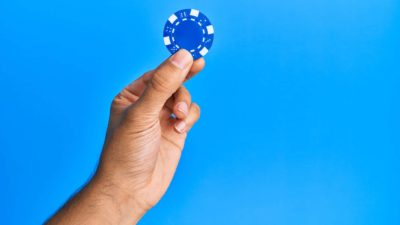The JB Hi-Fi Limited (ASX: JBH) share price has been through plenty of volatility over the past year. At the time of writing, it's down close to 20% since 1 April 2023.
JB Hi-Fi operates three different businesses – JB Hi-Fi Australia, JB Hi-Fi New Zealand, and The Good Guys. Each of these businesses has a good position in the markets in which they operate.
The last few years have been a very profitable period for the ASX retail share. But that may be about to change if households don't buy as many consumer goods in the next couple of years. Inflation and higher interest rates are making things tougher for people's budgets.
Earnings expected to fall
In FY22, the business made earnings per share (EPS) of $4.80, which was growth of 8.8% year over year.
Then, in the FY23 half-year result, it generated $3.02 of EPS, which was growth of 20.4% after comparing it against a locked-down six months in the prior corresponding period.
But, in FY23, the business is expected to generate EPS of $4.50 according to Commsec. This would be a reduction of 6.25% year on year. EPS could then fall to $3.45 in FY24, which would represent a fall of around 28% compared to FY22.
However, I'm not sure many investors would have said they believed EPS was going to stay elevated forever. Demand for TVs, fridges, computers, and phones can go up and down through the economic cycle. But I think it would be a mistake for investors and the market to price JB Hi-Fi shares as though conditions will be like this for a very long time.
I believe that the RBA interest rate will reduce towards 3% if/when inflation settles back close to that level.
Why JB Hi-Fi shares could outperform
I think it particularly makes sense to look at ASX retail shares at a point in the economic cycle when conditions are uncertain.
I wouldn't just buy any retailer though. I'd make to make sure that the retailer has a strong business model and is attractive for customers.
JB Hi-Fi itself says there are a few key advantages that it has: scale, low-cost operating model, multi-channel capabilities, and its people and culture.
It says it's the number one player in the Australian consumer electronics and home appliance market, which is useful because it gives it more relevance to local and global suppliers. Being the biggest means it can spend more on marketing, benefit from efficiencies, and get a better deal buying products.
The low-cost operating model refers to its focus on "productivity and minimising unnecessary expenditure", with "highly productive floor space with high sales per square model". It also means it can respond to market price activity and maintain its focus on market share while competing with older competitors and new entrants.
The multi-channel capabilities mean customers can engage easily, making a sale potentially more likely. There are online, in-store, and over-the-phone sales channels that shoppers can utilise.
Finally, it suggests that exceptional customer service is a key selling point, while having a "dynamic and flexible environment" allows the business to pivot quickly to adapt to any changing market conditions.
I believe that, over the long term, JB Hi-Fi can continue to perform. Australia's growing population can help overall demand over time, which can support sales.
According to Commsec, the JB Hi-Fi share price is valued at just 13x FY24's estimated earnings, with a possible grossed-up dividend yield of 7.25% for that year. I think it's a good price to invest, but I wouldn't expect it to deliver enormous capital growth from here because of how large it already is. However, I do think it can outperform — though a lower share price would be even more attractive.









